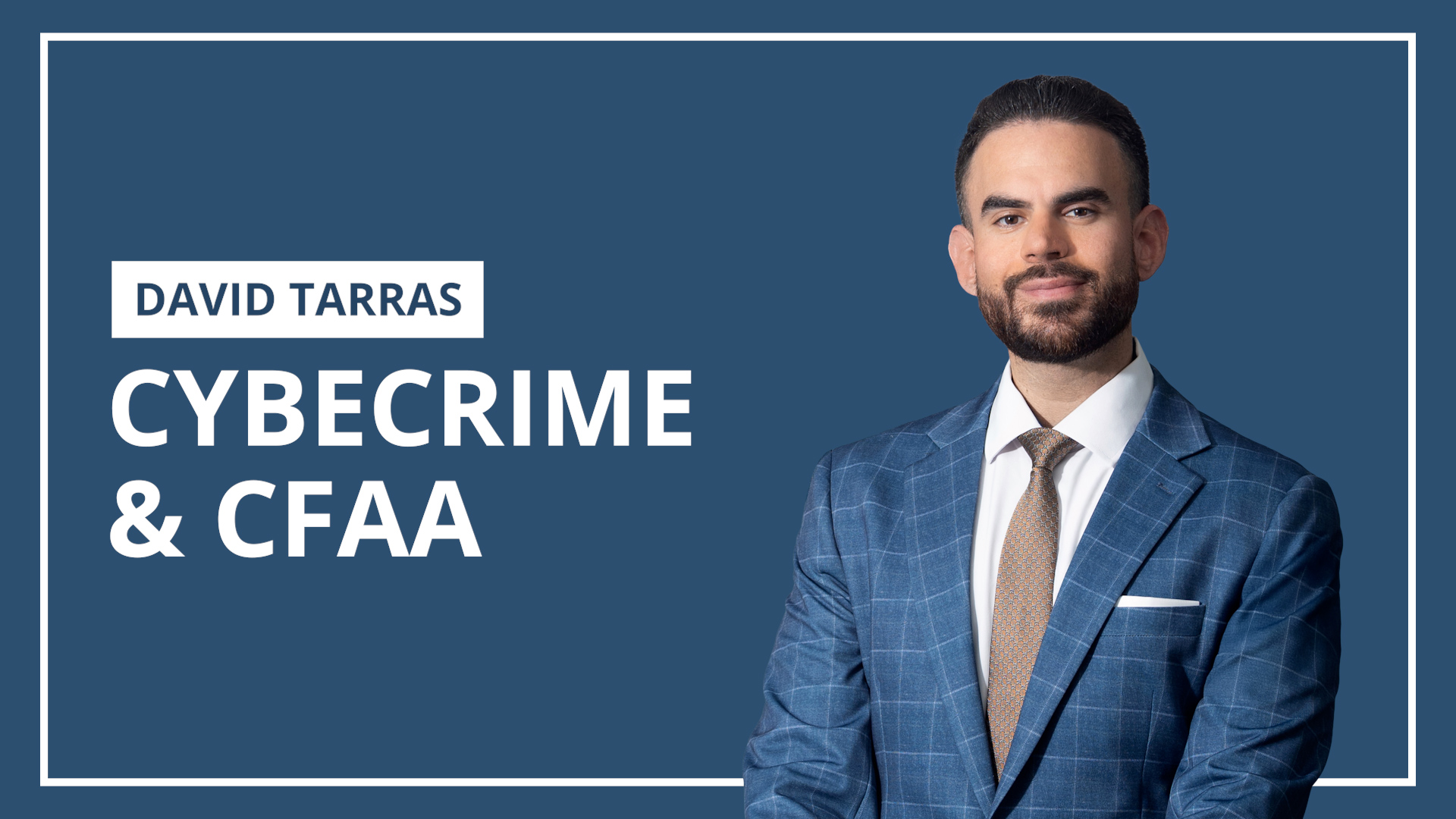There are a variety of different charges that can fall under the category of cyber crime. These can be financial cases, wire fraud involving the internet, cross-border transactions, identity theft, money laundering, drug-related cases, and even misconduct charges. The Department of Justice has made cyber crime one of its major enforcement priorities, because they are still figuring out how to regulate this ever-expanding cyber world we live in—including AI, hacking, and cross-border digital threats.” – David Tarras, Federal Criminal Defense Lawyer
In this video, South Florida federal criminal defense attorney David Tarras, founder of Tarras Defense, explains the rise of cyber crime charges and how the DOJ is aggressively pursuing them. He highlights how today’s cyber prosecutions involve not just traditional online identity theft, but also sophisticated hacking operations by domestic actors and foreign governments like North Korea and China, often using artificial intelligence (AI) to exploit vulnerabilities.
David emphasizes that defending cyber crime cases requires more than courtroom skill—it requires deep knowledge of technology. A successful defense depends on understanding:
- How AI systems and tools are being leveraged by hackers and investigators
- Metadata, digital footprints, and how information travels online
- IP addresses, servers, and cross-border jurisdictional issues
- The way federal agencies build cyber crime cases through surveillance and digital forensics
“Cyber crime is a broad topic, but it is certainly a major enforcement goal, if not the predominant enforcement goal, of the Department of Justice right now,” David explains.
For individuals and companies facing cyber crime allegations—whether involving financial fraud, cryptocurrency, money laundering, or hacking—early representation by an experienced federal defense lawyer is essential.

